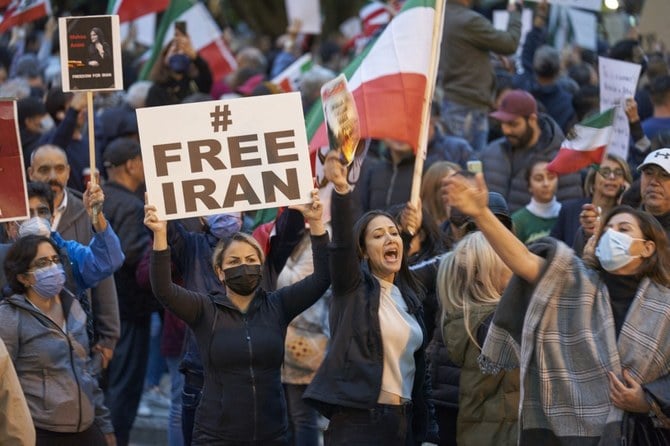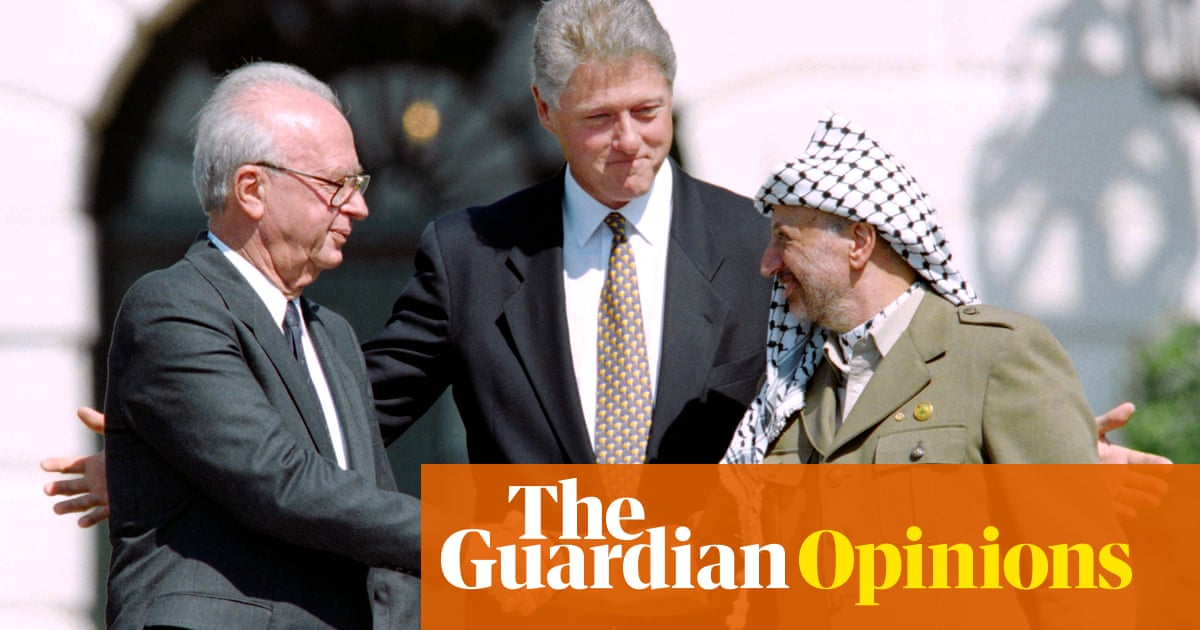
Iran’s response is to protest innocence, yet not allow international inspectors into its military sites
Iran is facing nothing less than total isolation and a descent into full pariah status
LONDON: The loudspeakers are already coming down. Barely five days since the historic meeting between the leaders of the two Koreas, South Korea has begun dismantling the speakers that have been blasting propaganda — and Korean pop music — over the border and many miles into North Korea since January 2016.
Erected in response to Pyongyang’s fourth nuclear test, they were switched off before last Friday’s inter-Korean summit. Now they are coming down altogether. It’s all go along the DMZ (De-Militarized Zone).
The meeting between North Korea’s Kim Jong-un and South Korea’s Moon Jae-in was choreographed to look as friendly and conciliatory as it is possible to be after you have technically been at war for 65 years. The two leaders pulled it off, even holding hands as they hopped over the dividing line between one Korea and the other. And it was not all for show. The meeting produced a commitment to de-nuclearize the Korean peninsula and formally end the war with a peace treaty to replace the 65-year-old armistice. Supreme Leader Kim pledged to shut down his nuclear testing site at Punggye-ri this month.
A visit to North Korea by US President Donald Trump is now very much on the cards and it has emerged that Mike Pompeo, his newly-appointed Secretary of State, has already been. He met Kim Jong-un in Pyongyang in April, and says there is a “real opportunity” for an agreement between Washington and Pyongyang on halting nuclear testing.
Where then does that leave Iran, the other nation the world does not want to see armed with nuclear weapons?
On May 12, President Trump will decide whether to ratify the continuation of the Joint Comprehensive Plan of Action (JCPOA), the agreement in which Iran gives up its nuclear industry in return for the lifting of sanctions. It is no secret that the US president hates the JCPOA and strongly doubts the Iranians are sticking to their part of the bargain.
Iran’s response is to protest innocence, yet not allow international inspectors into its military sites. If the JCPOA collapses, the sanctions would return and life would get harder for the Iranian people. But it would also leave Tehran free to build its arsenal, unscrutinized and unimpeded.
That would have been the likely scenario, come May 12, if two events had not happened. The first was Israel’s proclaimed discovery of evidence indicating that Iran had “lied, big time” (in the words of Prime Minister Benjamin Netanyahu) about not having a nuclear weapons program. European powers said the Israeli announcement only serves to support the JCPOA.
The second was the meeting of the two Korean leaders, which, say analysts, showed that confrontation is ultimately counter-productive.
“Kim Jong-un got the message that Trump was serious. And not just Trump, but the entire international community spoke with one voice against the amassing of nuclear weapons and intercontinental ballistic missiles,” said Dr. Hamdan Al-Shehri, a political analyst and international relations scholar, based in Riyadh. “The building of pressure on North Korea worked in making Pyongyang see reason and the futility of the policy of confrontation and threats.”
Marc Martinez, a country-risk analyst based in the UAE, said: “The signal it sends to Tehran is that after many decades of isolation, sanctions and food shortages, the North Korean leader will negotiate face to face with the president of the world’s superpower. The negotiations will be the symbol of what the French called the ‘equalizing power of the atom,’ and a constant reminder to Iranian hard-liners that the US only respects strength. Some in Iran will now be able to argue that Iran should follow the North Korean path and endure sanctions in order to reach the same status. “However, I am sure that many North Koreans are also wondering right now what would be the value of the treaty they are negotiating when the US president is about to pull out of the nuclear agreement the previous US administration signed with Iran.”
But there are two key differences in the way North Korea and Iran have been handled. One is the involvement of China, North Korea’s only remaining ally, as a mediator between Pyongyang and Washington.
“China made clear to its ally, North Korea, that it should no longer test the patience of the international community,” said Al-Shehri.
Perhaps to hammer home the point, China is sending its foreign minister — the highest-level visitor for years — to North Korea this week.
The second factor is unanimity. Where Iran is concerned, there isn’t any. While everyone agreed that there could be no compromise over North Korea’s nuclear program, there is a clear split between the US president, who considers the JCPOA to be “the worst deal ever,” and European leaders who insist it is better than no deal at all — a mistaken view, according to Al-Shehri.
“The European nations who were party to the nuclear deal never took into consideration Tehran’s missile activities. Even today the European nations are calling for keeping the nuclear deal, despite Iran’s devastating role in the region.
“The Iranian militias in Lebanon, in Iraq, in Yemen and in Syria have wreaked havoc. The international community should have rallied behind Trump and piled pressure on Iran. That did not happen.
“The mistake committed by former US President Barack Obama in appeasing Tehran is being continued by Russia and European nations. As a result of this, Tehran has been emboldened to play with fire.”
One reason for that boldness is Europe’s reluctance to challenge Iran, even when Tehran has kept International Atomic Energy Agency (IAEA) inspectors out of its military sites, said Mark Dubowitz, CEO of the Foundation for Defense of Democracies.
“The US position, both under the Obama anadminfistration and the Trump administration, as well as the European position, is that it is absolutely not what is allowed under the JCPOA. And we have to get into those military sites because that’s clearly where Iran is going to conduct clandestine military nuclear activities. Is that speculation? No, we have a decades-long track record where Iran has done exactly that.”
Marc Martinez said any de-nuclearization agreement with Kim Jong-un would certainly include a pledge not to share its nuclear knowledge.
“If an overall agreement is signed, Washington will make sure Pyongyang has enough incentives to keep its secrets,” he said.
Iran, meanwhile, is facing nothing less than total isolation and a descent into full pariah status.












